This comprehensive course provides a solid foundation in Data Science, equipping learners with the essential skills and knowledge to extract valuable insights from data and drive data-driven decision-making. Through a hands-on approach,
students will gain expertise in Python programming, data wrangling and exploration, statistical foundations, machine learning fundamentals, and advanced techniques such as natural language processing and data visualization. The course covers the entire data science lifecycle, from data acquisition and cleaning to model building, evaluation, and deployment. Additionally, students will explore ethical considerations in data science, ensuring responsible and ethical practices in their work.
Once enrolled, our friendly support team is here to help with any course-related inquiries.
Learning Outcomes
• Master Python programming for data analysis and visualization.
• Develop data wrangling, cleaning, and feature engineering skills.
• Gain expertise in exploratory data analysis and data visualization.
• Understand statistical concepts and hypothesis testing.
• Learn machine learning techniques for supervised and unsupervised learning.
• Apply advanced methods like dimensionality reduction, regression, and classification.
• Explore unsupervised learning techniques like clustering and association mining.
• Develop natural language processing skills for text analysis.
• Create compelling data visualizations and communicate insights effectively.
• Evaluate and tune machine learning models for optimal performance.
• Understand ethical considerations in data science practices.
Delivery Format
Instructor-led course
Delivered online via live virtual sessions
Scheduled every month
Course Benefits
- Career Advancement
- Flexible Learning
- Continuous Learning Opportunities
- Mini-projects/Lab activity documents/Configuration guides
- Quizzes
- Programming-based assessment
- A Capstone project
- Industry Relevance
Instructors
All courses are taught by experienced trainers with a minimum of eight years of industry experience.
Modules
1. Data Science Overview
2. Types of Data and Data Sources
3. Data Science Workflow
4. Data Science Life Cycle
5. Data Science Tools and Libraries
6. Data Science Applications
7. Ethical Considerations in Data Science
1. Python Basics (data types, control structures, functions)
2. Python Data Structures (lists, tuples, dictionaries, sets)
3. Python Libraries (NumPy, Pandas, Matplotlib)
4. Control Flow and Functions
5. File Handling in Python
1. Data Acquisition and Storage
2. Data Cleaning Techniques
3. Handling Missing Data
4. Data Transformation and Feature Engineering
5. Data Normalization and Scaling
1. Data Cleaning and Preprocessing
2. Data Visualization
3. Data Summarization
4. Data Transformation
5. Data Exploration Techniques
6. Correlation Analysis
7. Outlier Detection
1. Descriptive Statistics
2. Probability Distributions
3. Hypothesis Testing
4. Confidence Intervals
5. Regression Analysis Concepts
1. Introduction to Machine Learning
2. Types of Machine Learning (Supervised, Unsupervised, Reinforcement)
3. Model Training and Evaluation
4. Overfitting and Underfitting
1. Importance of Feature Selection
2. Techniques for Dimensionality Reduction (PCA, LDA)
3. Feature Scaling
1. Simple Linear Regression
2. Multiple Linear Regression
3. Polynomial Regressio
1. Logistic Regression
2. Decision Trees and Random Forests
3. Support Vector Machines (SVM)
1. Clustering (K-Means, Hierarchical, DBSCAN)
2. Dimensionality Reduction (PCA, t-SNE)
3. Association Rule Mining
1. Text Preprocessing
2. Bag-of-Words and TF-IDF
3. Word Embeddings (Word2Vec, GloVe)
4. Named Entity Recognition (NER)
5. Sentiment Analysis
1. Storytelling with Data
2. Interactive Visualization with Plotly
3. Geospatial Data Visualization
4. Time Series Visualization
1. Cross-Validation
2. Grid Search for Hyperparameter Tuning
3. Evaluation Metrics (Precision, Recall, F1 Score)
Prerequisites
• Basic programming knowledge (preferably Python)
• Familiarity with mathematics concepts (algebra, calculus, and statistics)
• Curiosity and willingness to learn
Audience
This course is designed for individualsinterested in pursuing a career in data science or enhancing their data analysis skills. It caters to professionals from various backgrounds, including computer science, engineering, business, finance, and research domains. The course is suitable for both beginners seeking to enterthe field of data science and experienced professionals looking to upskill and stay up-to-date with the latest data science techniques and best practices.
How do I Access The Program
- Buy the course online
- Save your payment transaction receipt for any future reference
- The programs will commence only upon formation of a minimum batch of 20 participants
Bulk Orders
Incase you are looking for bulk user licenses, or customized Learning Paths for various Job Roles, reach out to us with your detailed requirements.
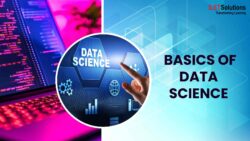
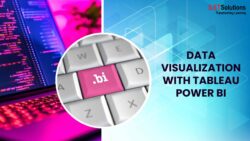
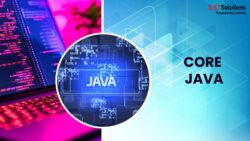

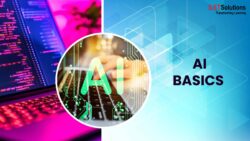
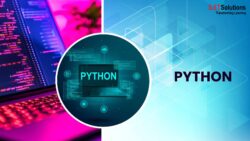
Reviews
There are no reviews yet.